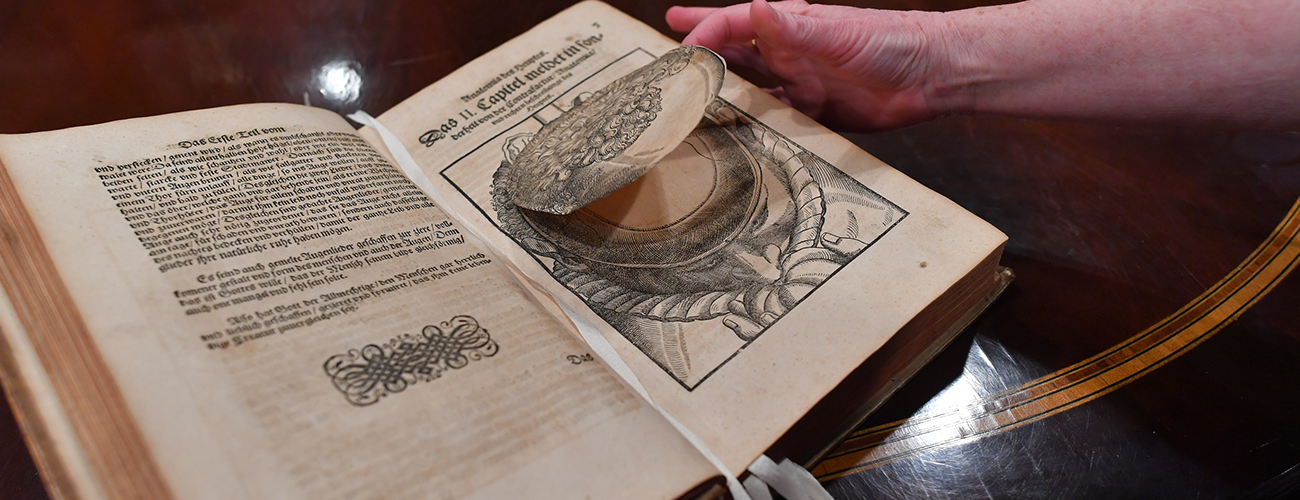History of the Libraries
The original Massachusetts Eye and Ear Library was established in 1876 with the purchase of a small number of books for the staff. In 1926, Dr. Lucien Howe established the Howe Laboratory for ophthalmic research.
This laboratory included an extensive library that soon merged with the infirmary's library and was called the Library of the Howe Laboratory of Ophthalmology and the Massachusetts Eye and Ear Infirmary. Because it was mainly funded by Howe funds, administered through Harvard, Harvard considered it a branch library allied to the Harvard Medical School Library. The otolaryngology section of the library, which had been housed at Massachusetts General Hospital for some years, was brought back and merged with the Howe Library in 1949.
The first librarian was hired in 1928 and, in 1932, the first Library Committee began oversight of the operation. The rare book collection was established with ophthalmic donations from Mrs. Howe and otolaryngologic texts from Dr. Moses Lurie. Both wisely provided endowments for future purchases.
In the mid-1980s, the hospital began a long overdue campaign to raise funds for a new library that would include an archives and a rare book room. In 1986, the library moved into its new space on the third floor, where it remains today. At that time, the library was equipped with public-access computers and the hospital's first fax machine. To reflect the funding that built the new library, the name was changed to The Libraries of the Massachusetts Eye and Ear Infirmary: The Lucien Howe Library of Ophthalmology, The Leroy A. Schall Library of Otolaryngology and the Abraham Pollen Archives and Rare Book Library. Many still call it the Howe Library.
An archivist was hired to organize the rare books and papers of the Mass. Eye and Ear staff. These treasures were housed in a new, secure, climate-controlled area. The rare book room was named the Charles Snyder Reading Room after the third library director, who had a great interest in rare books, in the history of Mass. Eye and Ear and in medicine.
In 2005, Dr. Nelson Kiang officially gave the more than 2,000 texts of the Speech and Hearing Sciences Library of the Eaton-Peabody Laboratory to the libraries. While they remain in the Eaton-Peabody Laboratory, they can be used by the hospital community.


